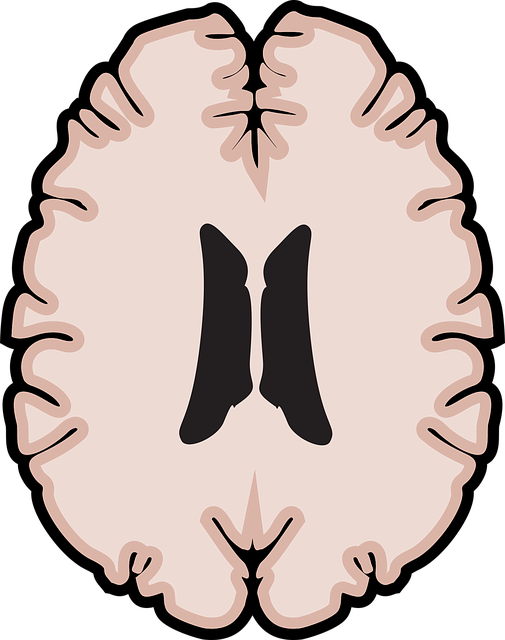Castle Rock Adjustment Disorder (CRAD) poses significant challenges for mental health professionals, impacting their well-being and practice due to intense emotional reactions to minor stressors. Early recognition is key, with Mental Wellness Coaching Programs offering effective strategies for stress management and emotional regulation, fostering resilience in therapists. Education programs equip practitioners with knowledge and skills to identify CRAD risk factors, prevent burnout, and create healthier work environments. In therapy, prioritizing safety, building resilience, and enhancing mental health awareness equips clients with healthy coping mechanisms and early warning signs recognition, while open communication and regular emotional assessments safeguard the therapeutic process.
Mental health professionals face unique challenges, particularly when dealing with clients suffering from Castle Rock Adjustment Disorder (CRAD). This article delves into the intricacies of CRAD and its impact on therapists, exploring identifying risk factors and potential challenges in mental health practice. We offer practical strategies for mitigating risks and ensuring safe therapy sessions, emphasizing the importance of understanding CRAD to enhance therapeutic outcomes. By implementing these measures, professionals can create a supportive environment that promotes healing while safeguarding their well-being.
- Understanding Castle Rock Adjustment Disorder and Its Impact on Therapists
- Identifying Risk Factors and Potential Challenges in Mental Health Practice
- Strategies for Mitigating Risks and Ensuring Safe Therapy Sessions
Understanding Castle Rock Adjustment Disorder and Its Impact on Therapists

Castle Rock Adjustment Disorder (CRAD) is a unique challenge faced by mental health professionals, impacting their well-being and practice. This disorder, characterized by intense emotional reactions to seemingly minor stressors, can significantly affect therapists’ ability to maintain a balanced life and work effectively with clients. CRAD often presents as heightened anxiety, anger, or depression, leading to difficulties in managing caseloads and professional boundaries.
Therapists suffering from CRAD may struggle with self-care, confidence, and overall mental wellness. It’s crucial for professionals to recognize the signs early on. Mental Wellness Coaching Programs can play a vital role in development by offering strategies for stress management and emotional regulation. By participating in these programs, therapists can enhance their resilience, boost confidence, and improve their ability to support clients facing similar challenges, ultimately enriching both their professional practice and personal lives.
Identifying Risk Factors and Potential Challenges in Mental Health Practice

In the realm of mental health practice, identifying risk factors and potential challenges is paramount to ensuring safe and effective therapy. Mental health professionals often navigate complex landscapes where various factors can contribute to a client’s presentation. These include trauma, stress, and underlying psychiatric disorders, such as Castle Rock Adjustment Disorder. Recognizing these risks early on is crucial for tailoring interventions that address both the immediate symptoms and underlying causes.
Effective mental health education programs design curricula that equip practitioners with the knowledge and skills to identify and mitigate these challenges. This involves not only understanding mood management techniques but also learning burnout prevention strategies for healthcare providers, as prolonged exposure to distressing cases can lead to professional exhaustion. By integrating these protective measures into their practice, professionals can foster a healthier work environment while enhancing their ability to support clients in overcoming mental health barriers.
Strategies for Mitigating Risks and Ensuring Safe Therapy Sessions

In the realm of Castle Rock Adjustment Disorder therapy, mitigating risks and ensuring safe therapy sessions are paramount for both professionals and their clients. One key strategy is resilience building, empowering individuals to cope with challenges and setbacks in a healthy manner. By integrating techniques that enhance mental health awareness, therapists can help clients identify early warning signs of potential risks and implement effective mood management strategies.
Additionally, fostering an environment of open communication and setting clear boundaries are essential. Therapists should regularly assess the client’s emotional state and provide support systems to navigate any distressing experiences. These proactive measures not only safeguard the therapy process but also contribute to the overall well-being of individuals seeking treatment for Castle Rock Adjustment Disorder or other mental health concerns.
Mental health professionals play a crucial role in helping individuals cope with various challenges, including Castle Rock Adjustment Disorder. By understanding the unique impacts of this disorder on therapists and identifying risk factors, practitioners can better navigate potential challenges in their practice. Implementing effective strategies for risk mitigation ensures safe therapy sessions and fosters a supportive environment for both therapists and clients. This comprehensive approach to mental health care is essential in providing quality treatment for those struggling with Castle Rock Adjustment Disorder Therapy.













